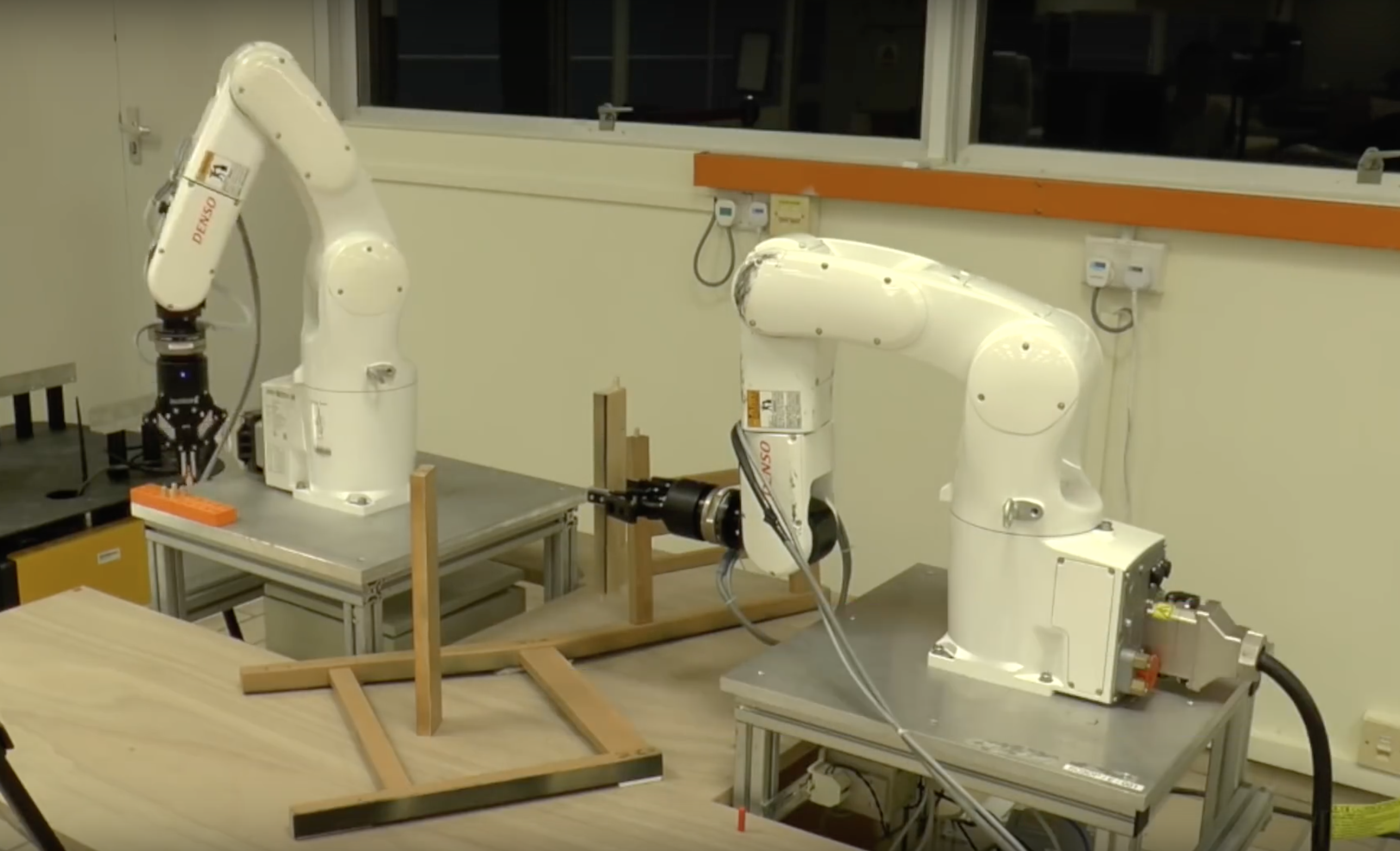Robots assemble Ikea chair in under ten minutes
Loathe building flat-pack furniture? Androids are here to help

A free daily email with the biggest news stories of the day – and the best features from TheWeek.com
You are now subscribed
Your newsletter sign-up was successful
The stressful task of assembling flat-pack furniture looks set to become a thing of the past following the unveiling this week of a robot that can do it for you.
Scientists at Nanyang Technological University, in Singapore, have created an android featuring a 3D camera and “industrial robot arms” with grippers that is capable of assembling furniture without human help, The Guardian reports.
Tasked with constructing Ikea’s £18 Stefan chair, two robots working together successfully assembled the chair in just nine minutes - faster than it would take most humans, the newspaper says.
The Week
Escape your echo chamber. Get the facts behind the news, plus analysis from multiple perspectives.

Sign up for The Week's Free Newsletters
From our morning news briefing to a weekly Good News Newsletter, get the best of The Week delivered directly to your inbox.
From our morning news briefing to a weekly Good News Newsletter, get the best of The Week delivered directly to your inbox.
However, the scientists had previous spent around 11 minutes programming the robots to perform the assembly process.
The team hope that, by integrating more artificial intelligence (AI) into the robots, they will one day be able to teach themselves how to build pieces of furniture by studying the instruction manual, looking at a picture of the finished item, or through verbal commands, the newspaper reports.
Although robots have been used in car assembly lines for decades, more intricate tasks - such as building Ikea furniture - poses a far great challenge for droids, reports the Daily Mail.
While assembly line machines carry out the same task repeatedly, robots have to carry out a series of different movements pick up and fit together furniture parts.
A free daily email with the biggest news stories of the day – and the best features from TheWeek.com
One of the scientists on the programme, Quang-Cuong Pham, told Reuters that the team hopes the robot will be able to assemble furniture such as the Ikea chair without requiring additional programming within the next five to ten years.
-
 Bad Bunny’s Super Bowl: A win for unity
Bad Bunny’s Super Bowl: A win for unityFeature The global superstar's halftime show was a celebration for everyone to enjoy
-
 Book reviews: ‘Bonfire of the Murdochs’ and ‘The Typewriter and the Guillotine’
Book reviews: ‘Bonfire of the Murdochs’ and ‘The Typewriter and the Guillotine’Feature New insights into the Murdoch family’s turmoil and a renowned journalist’s time in pre-World War II Paris
-
 Witkoff and Kushner tackle Ukraine, Iran in Geneva
Witkoff and Kushner tackle Ukraine, Iran in GenevaSpeed Read Steve Witkoff and Jared Kushner held negotiations aimed at securing a nuclear deal with Iran and an end to Russia’s war in Ukraine
-
 Claude Code: Anthropic’s wildly popular AI coding app
Claude Code: Anthropic’s wildly popular AI coding appThe Explainer Engineers and noncoders alike are helping the app go viral
-
 Will regulators put a stop to Grok’s deepfake porn images of real people?
Will regulators put a stop to Grok’s deepfake porn images of real people?Today’s Big Question Users command AI chatbot to undress pictures of women and children
-
 Most data centers are being built in the wrong climate
Most data centers are being built in the wrong climateThe explainer Data centers require substantial water and energy. But certain locations are more strained than others, mainly due to rising temperatures.
-
 The dark side of how kids are using AI
The dark side of how kids are using AIUnder the Radar Chatbots have become places where children ‘talk about violence, explore romantic or sexual roleplay, and seek advice when no adult is watching’
-
 Why 2025 was a pivotal year for AI
Why 2025 was a pivotal year for AITalking Point The ‘hype’ and ‘hopes’ around artificial intelligence are ‘like nothing the world has seen before’
-
 AI griefbots create a computerized afterlife
AI griefbots create a computerized afterlifeUnder the Radar Some say the machines help people mourn; others are skeptical
-
 The robot revolution
The robot revolutionFeature Advances in tech and AI are producing android machine workers. What will that mean for humans?
-
 Separating the real from the fake: tips for spotting AI slop
Separating the real from the fake: tips for spotting AI slopThe Week Recommends Advanced AI may have made slop videos harder to spot, but experts say it’s still possible to detect them